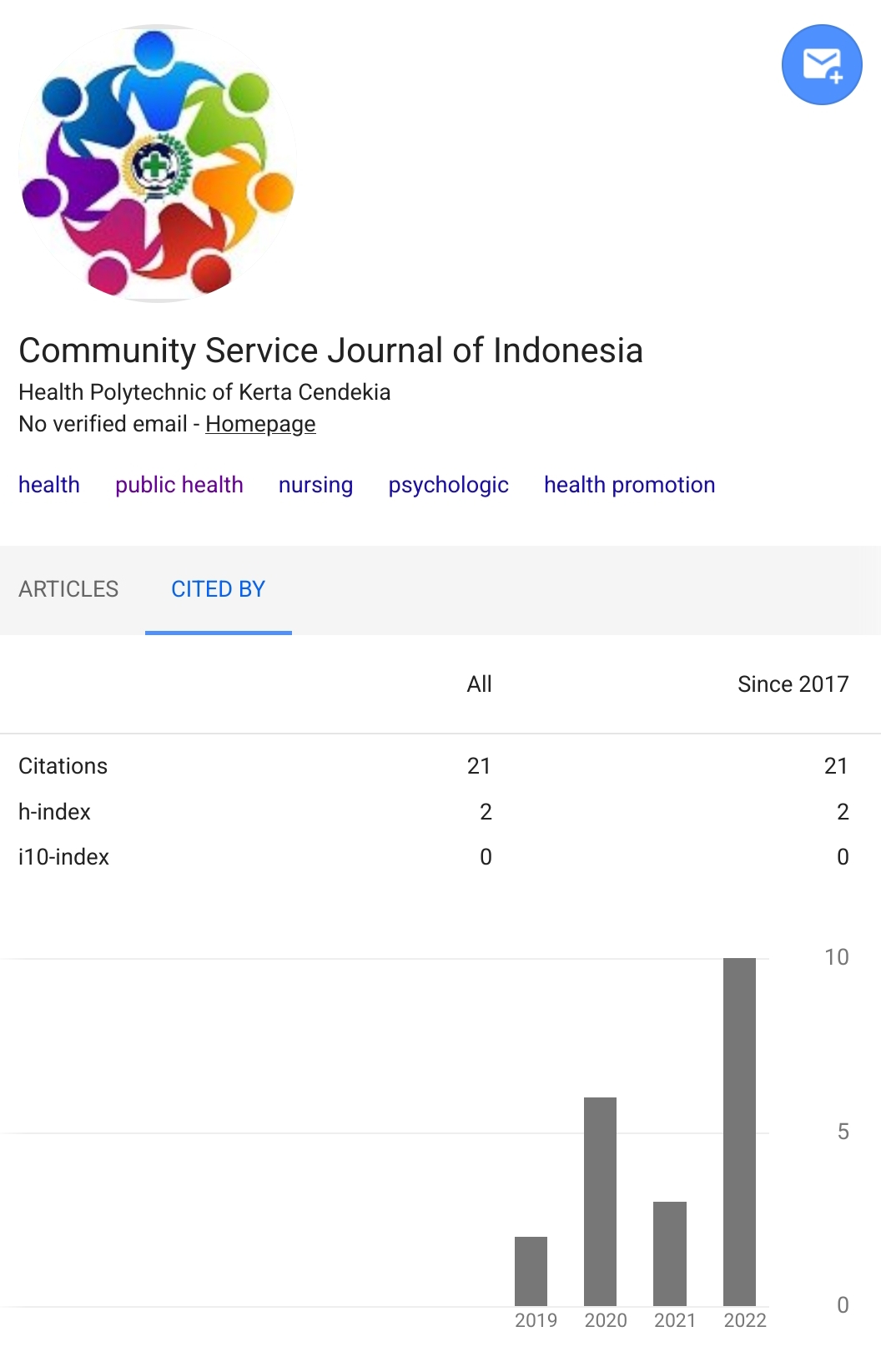CONTRIBUTION OF MOTHER’S KNOWLEDGE ABOUT TECHNOLOGY TRANSFER OF FOOD UNIFICATION AS SUPPLEMENTS ON CHILDREN
Abstract
The manifestation of human resources begins in the womb until the first 1000 days of life. Increased nutritional needs in the body that are not met while in the womb can result in various nutritional problem such as low birth weight, malnutrition, iron deficiency. The completeness of nutritional elements in food is often experienced by toddlers as having an impact on stunting, one of the influencing factors is the mother’s knowledge about the nutritional adequacy of toddlers and how to process food as Makanan Pendamping Air Susu Ibu (MPASI, weaning food) ingredients. The most common commodities in Srigonco village are green bananas, tuna, and red spinach but these commodities are sold at the Bantur market and families only eat rice, salt and crackers. In April 2023 survey through cadres, there were 30 stunted children. The solution offered is in the form of training, mother’s assistance for 3 months in making daily food menu variants using natural ingredients in Srigonco village with the combination of green bananas, tuna, and red spinach as MPASI which are adapted to the child age group. The service implementation procedure provides training and assistance to mothers who have stunted children and are at risk of stunting.References
Branca, F., & Ferrari, M. (2002). Impact of micronutrient deficiencies on growth: The stunting syndrome. Annals of Nutrition and Metabolism, 46(SUPPL. 1), 8–17. https://doi.org/10.1159/000066397 DOI: https://doi.org/10.1159/000066397
Colombo, S. M., & Mazal, X. (2020). Investigation of the nutritional composition of different types of salmon available to Canadian consumers. Journal of Agriculture and Food Research, 2(June), 100056. https://doi.org/10.1016/j.jafr.2020.100056 DOI: https://doi.org/10.1016/j.jafr.2020.100056
Gao, W., He, D., Ji, F., Zhang, S., & Zheng, J. (2020). Effects of daily light integral and LED spectrum on growth and nutritional quality of hydroponic spinach. Agronomy, 10(8). https://doi.org/10.3390/agronomy10081082 DOI: https://doi.org/10.3390/agronomy10081082
Headey, D., Hirvonen, K., & Hoddinott, J. (2018). Animal sourced foods and child stunting. American Journal of Agricultural Economics, 100(5), 1302–1319. https://doi.org/10.1093/ajae/aay053 DOI: https://doi.org/10.1093/ajae/aay053
Lopriore, C., Guidoum, Y., Briend, A., & Branca, F. (2004). Spread fortified with vitamins and minerals induces catch-up growth and eradicates severe anemia in stunted refugee children aged 3-6 y. American Journal of Clinical Nutrition, 80(4), 973–981. https://doi.org/10.1093/ajcn/80.4.973 DOI: https://doi.org/10.1093/ajcn/80.4.973
Maamela, K. S., Åsheim, E. R., Debes, P. V., House, A. H., Erkinaro, J.,
Copyright (c) 2023 Ari Damayanti wahyuningrum, Ika Arum Dewi Satiti

This work is licensed under a Creative Commons Attribution-NonCommercial 4.0 International License.
Authors who publish with Community Service Journal of Indonesia agree to the following terms:
- Authors retain copyright licensed under a Creative Commons Attribution-NonCommercial 4.0 (CC BY-NC 4.0), which allows others to remix, tweak, and build upon the authors' work non-commercially, and although the others' new works must also acknowledge the authors and be non-commercial, they don't have to license their derivative works on the same terms.
- Authors are permitted and encouraged to post their work online (e.g., in institutional repositories or on their website) prior to and during the submission process, as it can lead to productive exchanges, as well as earlier and greater citation of published work (See The Effect of Open Access). Authors can archive pre-print and post-print or publisher's version/PDF.













